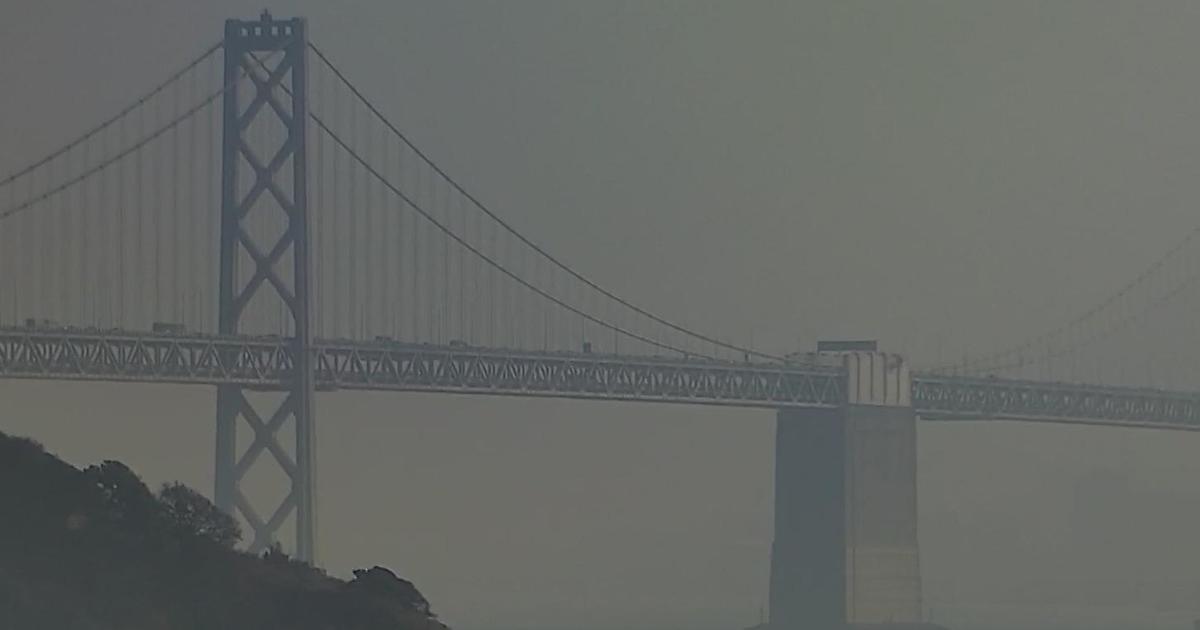UC Berkeley Study Finds Ways to Avoid Wildfire Particulates
BERKELEY (BCN) -- California residents can cut the particulate matter in their homes in half during wildfire season by closing windows, using air filtration systems and cooking less, a University of California at Berkeley study found.
Raging wildfires across the state have increased the amount of particulate matter in the Bay Area, leading to unhealthy air quality. Using crowdsourced data from over 1,400 buildings in San Francisco and Los Angeles, UC Berkeley researchers were able to conclude that efforts to reduce smoke infiltration were effective at substantially reducing indoor air pollution.
"While the particulate matter indoors was still three times higher on wildfire days than on non-wildfire days, it was much lower than it would be if people hadn't closed up their buildings and added filtration," said Allen Goldstein, a professor of environmental engineering and of environmental science, policy and management at UC Berkeley and a senior author on the study. "When people have information about the smoke coming their way, they are acting to protect themselves, and they are doing it effectively."
The researchers were able to collect data through PurpleAir, an indoor air pollution sensor that allows users to monitor the amount of particulate matter in their homes. Monitoring and preventing indoor air pollution is crucial, lead author and graduate student Yutong Liang said in a statement, given that chemicals, gases and particulate matter given off by wildfires can cause respiratory and cardiovascular problems.
When wildfires cause poor air quality, the researchers recommend shutting windows and doors, using air filters and limiting cooking -- which can cause its own particulate matter and cause outdoor pollution to enter through exhaust systems.
Air filters should be placed in bedrooms while you sleep, according to Joshua Apte, an assistant professor of civil and environmental engineering and of public health at UC Berkeley and co-author of the study. Filters don't have to be expensive to be effective -- Apte recommended that residents look online or on social media for tips on how to build a low-cost air filter using materials such as a box fan and furnace filter.
However, the type of building you live in can also be a mitigating factor on how well you can prevent particulate matter from entering your home. According to the researchers, newly constructed homes with central air conditioning were most effective at keeping wildfire smoke out.
The study noted that the $200 cost of PurpleAir sensors limited the number and type of households that could be included in the study, but hope to expand their research into a more diverse array of homes.
"One thing that we're deeply interested in is understanding what happens to people in indoor environments, because that's where people spend most of their time, and there's still an awful lot we don't know about indoor pollution exposure," Apte said.
"I think that these new methods of sensing the indoor environment are going to allow us to grapple a lot more with questions of environmental justice and find out more about who gets to breathe cleaner air indoors."
© Copyright 2021 CBS Broadcasting Inc. and Bay City News Service. All Rights Reserved. This material may not be published, broadcast, rewritten or redistributed.



